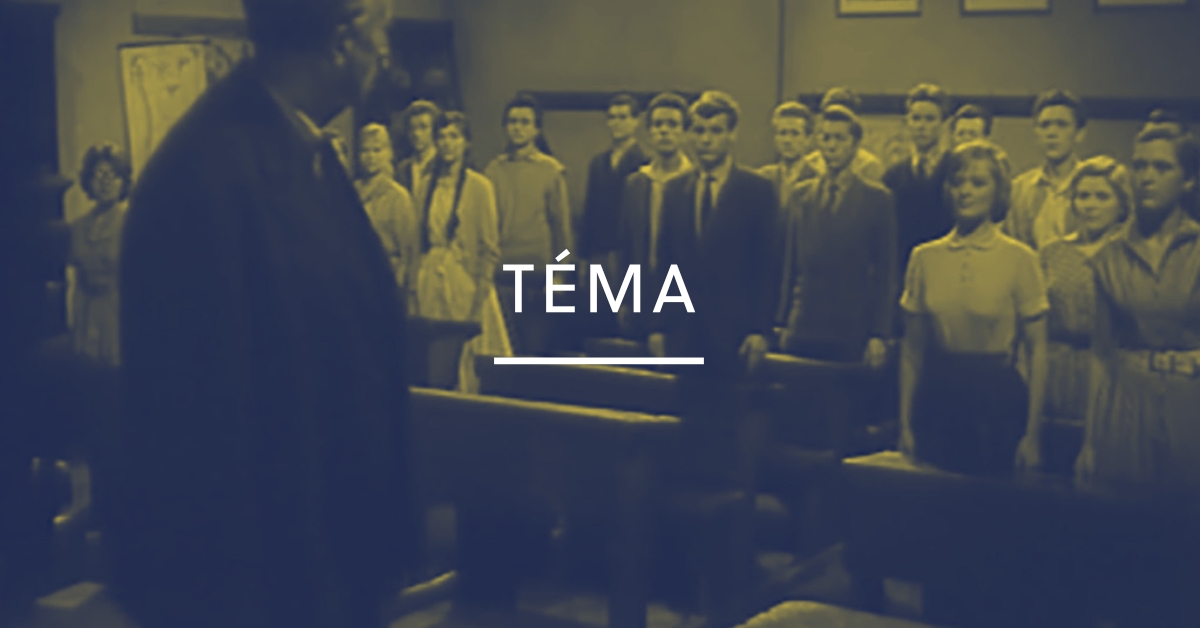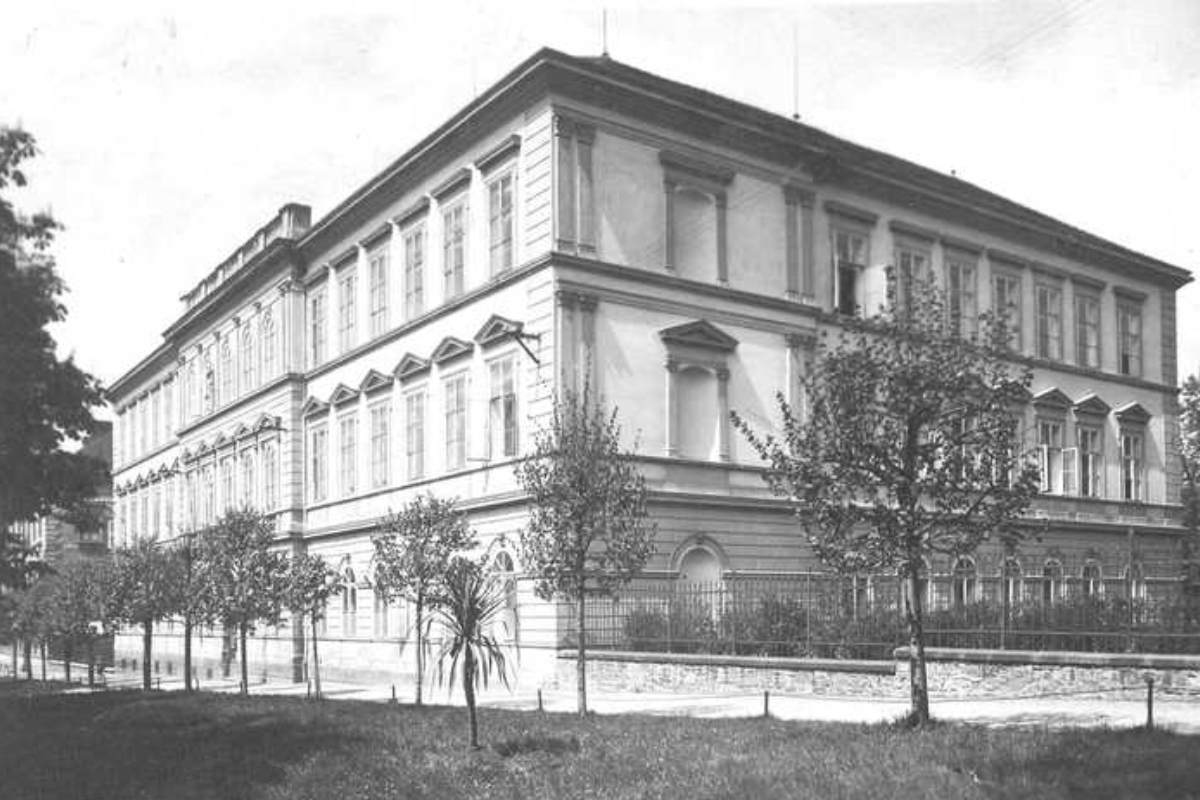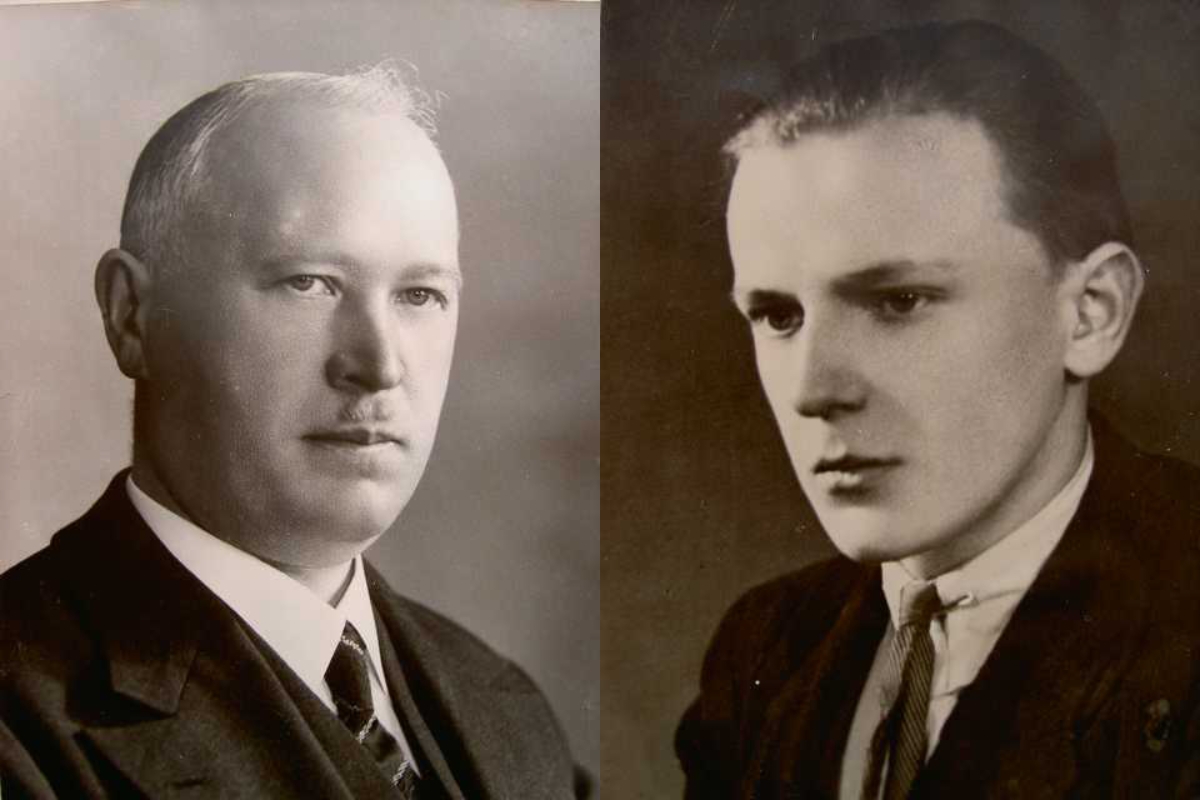The Higher Principle
"I am protesting, as every honest man must protest. I protest against the murder of your friends. Let their innocence, their pure blood, fall on the heads of their murderers."
The Higher Principle made Drd's short story of the same name famous - it is one of the finest and most valuable works of Czech cinema. But what was the real story?
 The Higher Principle (1960), directed by Jiří Krejčík
The Higher Principle (1960), directed by Jiří Krejčík
|
These are the historical facts of a tragic event that happened at the Příbram Gymnasium more than 75 years ago. An event that became common knowledge in a short story by another former student of the Příbram Gymnasium, the writer Jan Drda Vyšší princip. His story differs from reality, but at least thanks to him we can remember the tragic events.
This does not escape the attention of his classmate Červenka, a repeater who has failed the class and who, in an attempt to at least stand out, collaborates with the octavan Kepka, a former avid scout but now a zealous and newly minted German citizen. This is how the incident reaches the German authorities. It is Heydrichiade, any hint of resistance is considered a provocation.
|

A period photograph of the Pribram Gymnasium (today's Secondary and Higher Medical School)
|
He was supposed to have done this because, as a professor of Greek and Latin, he had reminded in his lecture that even the greatest empire, meaning the Roman Empire, had reached its end. Nor did he benefit from the fact that the inspection that had previously taken place in the school had not found the teaching areas sufficiently German-decorated and had found books in the school library unsuitable for the German Empire. The mild and dignified Lukes, instead of getting rid of them, took control of the library himself so as not to put the responsible employee in danger. However, as far as the alleged approval of the assassination of Heydrich is concerned, it is known that Lukeš, on the contrary, opposed it and considered it unfortunate in view of the number of victims that the subsequent repression would bring. He had no idea that he himself would be one of those victims. On the evening of 15 June, the son and father Stočes and the director Lukeš were taken to the prison in Tabor. Dr Josef Lukeš was executed six days later, Antonín and Vojtěch Stočes on 29 June. What was the fate of the two traitors? One would like to say that God's mills are at least partially grinding. Kepka joined the German army as an airman, was shot down and captured. After 1948, he lived in West Germany. Červenka, a teacher, left school in 1942 because of poor grades, and after the war was sentenced to 15 years. After eight years he was released for exemplary behaviour and worked as a labourer in the forest. There he was killed by a falling tree. Today's Příbram Gymnasium commemorates the memory of Antonín Stoces every year at the end of June with an athletic memorial bearing his name. |

Headmaster Josef Lukeš (left) and Antonín Stočes
| Jan Drda's short story vs. Jiří Krejčík's film vs. reality 1) The short story The Higher Principle was published in the collection The Dumb Barricade, where Jan Drda told the stories of ordinary heroes of World War II. The story The Higher Principle is based on an event that took place at the Příbram Gymnasium. Drda himself studied at this school and even knew the Stočes family, where he used to teach privately. 2) He placed the story in the seventh grade (the short story), or octave (the 1960 film, which he co-wrote); in fact, it was sexta A (the memorial plaque on the Stočes house erroneously states sexta B). 3) The hero is not the headmaster (Dr. Lukeš), but the Latin professor Málek (he does not even have a name in the story), nicknamed for his favourite proverb The Higher Principle. 4) Antonín Stočes is replaced by three students (Moučka, Ryšánek, Havelka). In the story we do not learn the reason for their arrest, the main focus is on the professor. In the film, they do not tear out a letter with Hitler from the magazine, but they paint ears and a moustache on the acting Reich Protector Heydrich. 5) In addition, the film develops a subplot involving a female classmate of the trio of students who does everything she can with Professor Malek to save the boys.
■ Josef Fryš The text originally appeared under the title 70 years ago, the biggest tragedy in the history of the Gymnasium happened on the website of GymTV, the school television of the Příbram Gymnasium in 2012. On Tuesday, 21 June, it will be 80 years since the Gymnasium's director, PhDr. Josef Lukeš, was executed in the prison in Tabor. Play a navigation game inspired by a real event in the historical part of Příbram. |
Other articles:











